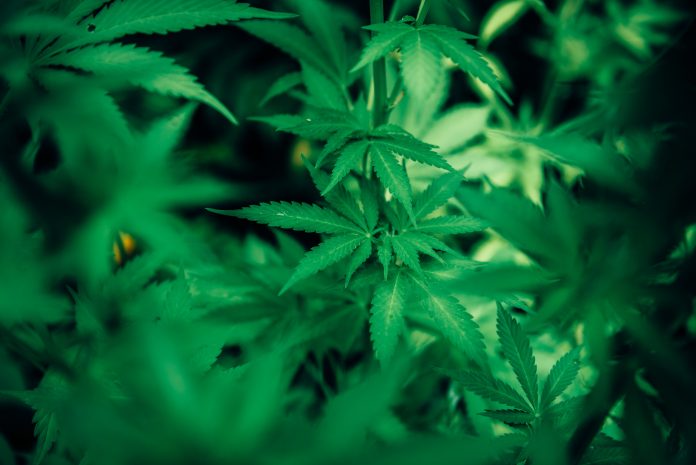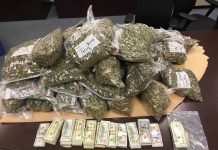This article has been written by Shoronya Banerjee from Amity University, Kolkata. This article talks essentially about hemp farming in India and the position of government licensing in association to it. It also throws light upon the process of acquiring such a license.
Table of Contents
Introduction
Although considerably different, hemp is derived from a similar family of plants as marijuana. Hemp, in reality, is a type of cannabis, scientifically referred to as Cannabis sativa L. “cannabis (hemp)” as defined under Section 2(iii) of the Narcotics and Psychotropic Substances Act, 1985 (NDPS ACT), puts forth a definition for it by bifurcating it into three parts. Firstly, it talks about the separate resins derived from the cannabis plant in any form, which is ‘charas.’ Section 2(iii)(b) then goes ahead to mention the ‘flowering or fruiting tops of the cannabis plant’ and thirdly, the provision mentions any drink or mixture made out of these two forms of cannabis. The Narcotics and Psychotropic Substances Act, 1985, also allows the mass cultivation of hemp for horticultural and industrial uses. But under Section 10 of the Act, the power is vested in the state government to decide upon the limits within which licences may be given for its cultivation. Having a look at the NDPS Act, it does not differentiate between hemp and cannabis and Section 14 of the Act, allows the cultivation of cannabis for industrial purposes only for horticulture, and obtaining fibre or seed. But this, in turn, makes it difficult to keep a note of and control the cultivation of both.
With the presence of tetrahydrocannabinol (THC) normally below 0.3 percent, it is expected that the global industrial hemp market will substantially grow and expand from USD 4.6 billion in 2019 to USD 26.6 billion by 2025, recording a CAGR of 34%. Even after being recognised for its agro-based economy and potentiality in farming, India has not really delved into the wonders of this plant. The narcotics department within the revenue wing of the Union Ministry of Finance has given the sanction of the research for which the cannabis will be grown at Central Institute of Medicinal and Aromatic Plants. Even though the NDPS Act endows the state government with the power of granting licenses for hemp cultivation, the lack of a systemized government route and further the imposition of duties of excise on opium, Indian hem, narcotics and other narcotic drugs excluding medicinal and toilet preparations containing alcohol or any substance as laid further by the State Government under Entry 51 of the List II of the Seventh Schedule of the Indian Constitution, has proved to be an obstacle in the pathway of obtaining such licenses. Not even all, but Uttarakhand is the first state to have taken a step for legalizing the cultivation of hemp within their territories.
Thereafter, Uttar Pradesh went on to legalize it as well. But having a closer look, permission or license for hemp cultivation has been granted in such states, by the means of state excise legislations. Just as the provision put forth in the Jammu & Kashmir State Excise Act, 1958 lays down that the government with the help of notification can waive off the need for taking out a license needed for hemp cultivation. Even for allowing the cultivation of bhang and charas in Uttarakhand, it had to be done by the state government through the Uttarakhand State Excise Act, 1910. Himachal Pradesh is in the process of following these steps, with Madhya Pradesh and Manipur relaxing the regulations as well.
Purpose
With the Vedas referring to Cannabis as one of the five most sacred plants, the relation between India and Cannabis can be traced back to a thousand years ago. Hemp is a wonder plant with the prospect of playing a role in the textiles, automobiles, furniture, food, and so on industries. Although identification of its role in different industries has been an impetus in terms of increasing its licensing, the conflict with the definite legal status of it all over the world has, in turn, resulted in the absence of substantial research on it. The United States Senate voting for the legalisation of the cultivation, processing and sale of industrial hemp in 2020, really worked as an inspiration and in turn led to a number of start-ups in India for dealing in and working with the diversities of this plant. Still, the complex regulatory framework has brought in many hurdles and problems for the commercial cultivation of hemp. Looking at the Central Board of Excise and Customs, it is the governing authority at the state and centre level for investigating and granting permission for the production of Industrial Hemp with THC lower than 0.3.
Right from playing a role in ancient Indian Ayurveda to growing in the wild throughout India’s Himalayan foothills and the neighbouring plains of Kashmir to Assam located in the east, the horizon of opportunities that this plant brings in awaits India’s scope of huge economic growth and environmental development. Initially, the Single Convention on Narcotic Drugs, 1961, listed cannabis as it required the signatories to regulate it in a particular way. This Convention put forth that only appointed personnel could deal in or cultivate cannabis. Although India was not a signatory to this treaty for banning narcotics, the pressure imposed upon the nation by the US, resulted in the Rajiv Gandhi led government passing the Narcotic Drugs and Psychotropic Substances Act in 1985, which laid rigid provisions in terms of banning the production and sale of flowers and resin from cannabis and controlling and regulating narcotic drugs and psychotropic substances related activities.
Section 2[(viiib)(xiv)] in its definition of “narcotics drug” also includes cannabis(hem) making it necessary for a license to be obtained with the permission of the state government in terms of dealing in hemp as well. Until this ban hemp had been freely grown and harvested. Apart from the pressure from the US, the abundance of cannabis had also led to conspiracies, and misuse of it on a large scale which eventually brought in a reason for banning or making it necessary to acquire government license in terms of dealing in cannabis (hemp).
General steps for the acquisition of licenses
The Government of India, 1935 existing before the Constitution of India, put forth under its Section 103 the power of the federal legislature of two or more provinces for regulating a matter with consent. Furthermore, in 1940, the Drugs and Cosmetics Act was the primary legislation for regulating the import, manufacture, distribution, and sale of drugs and cosmetics. With the inclusion of the cultivation and production of hemp in the state list, therefore putting the operations related to the hemp industry under the state government. Furthermore in the mid-1980’s when the production of cannabis had been banned by the enactment of the NDPS Act, 1985, which through its Section 10 vested the power on the state governments control, and regulate the cultivation of cannabis plants and granting licenses for producing, manufacturing, trading, inter-state import and export of the plant and its derivatives and so on. It only allowed the state government and assigned personnel to deal with such related activities. In terms of talking about the process of acquiring such licenses, it actually varies as per states and union territories. Such as:
1.) For instance when talking about the procedure of enrollment for existing retail/wholesale drug license in West Bengal,
- Registration has to be done first. The individual has to visit the specific official site of the gateway and register there.
- After being assigned the applicant has to be furnished with this username and code for continuing with the process
- The existing license has to be registered.
- Specific and prime details of the organization/firm, permit number and a restoration receipt of that organization have to be given.
- The type of permit (retail or discount) has to be selected and the applicant is thereafter given an affirmation receipt.
- The application is forwarded to the approved authority, where the data is investigated.
- The candidate then has to fill a form from the site and pay the fees.
- The applicant is then required to submit the application once again. Thereafter, it sets out on the way to finally reach the Senior Inspector/Inspector of Drug Control.
- The Senior Inspector of Drug Control investigates the structure and reviews the unit.
- Within a time frame, the result is given to the applicant.
- These steps wind up the application system.
2.) While talking about Punjab, the Punjab State Pharmacy Council (licensing authority) has the authority of issuing drug licenses in the state of Punjab for beginning businesses in association to the pharmaceutical industry, drugs and cosmetics.
Essential documents required:
- Proof of Residence
- Identity Proof
- Refrigerator Receipt
- Qualifying Exam Certificate
- Distributor Declaration
- Experience Certificate (If Any)
- Khatian/ Documentary proof in support of Ownership of land
- Specimen Signature of RP/CP
- Tenancy/ House rent Agreement
- Location and layout sketch map of premises
- Character Antecedent Verification Certificate
- Location and layout sketch map of premises
- Declaration of RP/CP
- Affidavit of RP/CP
For renewal of such a license:
- Online deposition of fees via treasury portal.
- Tenancy/house rent agreement certificate by notary or NOC for a further period of minimum five years (In case of Dealer License).
- Self-declaration of a competent person in a prescribed format with signature and date.
- Proof of continued legal possession
- Declaration of the firm regarding the changes
- Resolution of Board of Directors
- Prescribed license renewal fee receipt
Online application procedure for drug license:
- The applicant has to visit: https://onlinedruginfo.punjab.gov.in/ for the license.
- User ID and password have to be used to login into the portal.
- Clicking on the option of “New Application/ Renewal of License”, the registration page opens up.
- The applicant is then required to fill in the credentials such as the name of the firm, the license type, shop details, applicant type- Proprietor/Partner/Pvt.Ltd/ Limited and such other prescribed details.
- Following these necessary documents have to be uploaded and then the button of Declaration has to be checked and then the“Save” button has to be clicked on.
- The prescribed fee (challan) in accordance with the structure has to be paid.
- After completing this process one has to click on the “Submit” button. Thereafter, the applicant will receive a message showing “Your application has been registered.” A printout of the same can be taken out as well.
- This newly issued drug license is valid for a minimum period of 1 year and can be further renewed for 1 to 5 years by the assigned officials on paying the necessary specified as per the SCHEDULE of the Punjab Legal Metrology (Enforcement), Rules 2013.
The process offline:
- Character Certificate from the District Magistrate
- Land(Proposed for cultivation) Registry Papers – Certified by the court.
- Next required is Khasra/Khatuni (Land and Crop Details)
- 2 and 3 need to be submitted with Excise Department – District Excise Officer
- The Excise Officer sends it to the Inspector.
- The inspector comes for the land inspection
- Inspector approves the same for cultivation
- Then the file is sent to the Collector office.
- Then finally Collector approves land for hemp cultivation
Trading licenses
9th November, 2014 saw the formation of the Ministry of AYUSH, mainly for the generation and development of AYUSH systems of health care. The Department of Indian System of Medicine and Homeopathy (ISM&H) introduced in March 1995 was what it was known as initially, this went on further to be renamed as Department of Ayurveda, Yoga and Naturopathy, Unani, Siddha and Homeopathy (AYUSH) in 2003. This threw light towards the development and need for progress in education and research in Ayurveda, yoga and Naturopathy, Unani, Siddha and Homeopathy. Manufacturing of ayurvedic medicines requires the acquisition of a license from AYUSH, whereas, only for the purpose of selling or trading of ayurvedic medicine one doesn’t need an AYUSH licence as just looking for a processor with an AYUSH license can do the work. Thereafter, AYUSH license is needed when trading in hemp for medicinal purposes. Amongst the types of drug licences granted by the Ministry of AYUSH, a lot of significance is given to retail, manufacturing and wholesale licenses. Retail license is significant in terms of selling ayurvedic and herbal products as retailers, whereas wholesale license is essential to function as a wholesaler in relation to such products.
Requirements significant for an applicant to acquire AYUSH manufacturing license:
- Manufacturing unit to be set up in an industrial area
- One needs to increase the space if one more drug is required
- It is mandatory for the manufacturing unit to be GMP certified.
- One’s team must have at least 2 ayurvedic experts and 2 pharmacists.
- All packing and manufacturing machines should be available with the individual.
- Timely inspection of the premises by assigned inspectors are a must.
When talking about drug licenses granted by the Ministry of AYUSH, necessary documents for Ayush Manufacturing License are:
- Incorporation / Proprietary / Other form of business
- Area of the manufacturing unit should be not less than 1285 sq ft.
- DMR act [The Drugs and Magic Remedies (Objectionable Advertisements) Act, 1954]
- (DMR act compliances must be followed by all manufacturers)
- Technical Officer (BMS doctor)
- Technical Officer (BSC with Bio.)
- Information regarding which product is to be manufactured.
- In which substantial form (tablets/liquid/powder) will the product be manufactured.
- Directors (related to the herbal domain) will be more preferable
AYUSH loan license
This license is issued when the products are manufactured by a third party. This license applies to a GMP certified manufacturer and thereafter, issued to the applicant company later. Requirements for an applicant in this case:
- As per the rules and regulations, manufacturing has to be carried out in an industrial area.
- The building, where the process is to be carried out should have at least three rooms, for office, storing the raw material and for storing the finished product subsequently.
- Regular inspection of the premise by a drug inspector is a must and there is no need for an Ayurvedic expert and Pharmacist.
- It is essential to take note that the manufacturing structure and company registration should be the same
Ayush Contract/Third Party Manufacturing License
This license comes to play when the applicant has the set up for manufacturing nor the license for it. This contract has the aspect of marketing, essentially done by the contract/third party manufacturing. Manufacturer license used by the manufacturer paves the way for receiving approval for the particular product from the assigned authority
Looking forward
With the advancement in science and technology and awareness about the benefits the wonder plant beholds, Indian states are slowly going ahead to legalise hemp within their territories. But the fundamental requirement stands in place of these organizations and institutions seeking for and getting the license to delve in hemp cultivation, to study and work further for knowing more about the prospects of this plant and making better use of it. Looking at industrial hemp, that too is essential for the betterment and expansion of the international and domestic markets. One big challenge would be working with seeds containing low THC content but again institutions have to take this challenge and work accordingly. Just like the Hemp foundation in Uttarakhand aims to provide a ground for germplasm research, in alliance with the scientific, research, and agricultural communities of the state. As per the ‘Agenda: 2030’ of the UN, the scope of application of hemp and the environmental benefits attached to it can easily fulfil the aim of establishing a sustainable future. Forming the excise department in coherence with a positive policy framework and making policy amendments to include several top-most hemp research organizations to play an important role will definitely direct the hemp industry in India towards the right path.
Another thing that the government could do is to suggest such organisations working in hemp cultivation, also as systemised consultancy firms for entrepreneurs who aim towards entering this multi-million industry. At this point in time, relaxation in regulation along with reasonable restrictions is required to bring back this millennia-old plant and work with it to achieve good economic growth. Definite and standardized laws are at one point needed to attract more organizations to take this up, but again reasonable restrictions are essential and to get a license, strict qualification and procedures without any loopholes must be there. With the Indian sub-continent facing all sorts of crisis, expansion in hemp cultivation could be a path-breaking change. The Indian climate supporting the expansion of hemp could easily direct the nation towards taking over the top place of the sphere dealing with this trillion-dollar crop.
References
LawSikho has created a telegram group for exchanging legal knowledge, referrals and various opportunities. You can click on this link and join:
 Serato DJ Crack 2025Serato DJ PRO Crack
Serato DJ Crack 2025Serato DJ PRO Crack











 Allow notifications
Allow notifications


